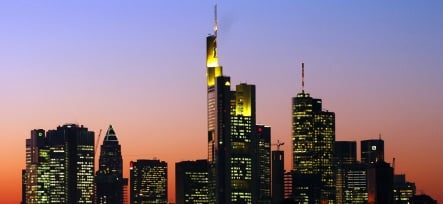The centre-left Social Democratic Party (SPD) started talks this week to form an alliance with the hard-line socialist Left to rule the south western state of Hesse along with the Green Party.
Jürgen Thumann, president of the Federal Association of German Industry (BDI) told tabloid newspaper Bild, “The Left party promises expensive good deeds to the voters, but is hiding where the money would come from.”
He said it was not clear to many that at the end of the day they would pay the bill themselves, “Through higher taxes and contributions or even through the loss of their jobs.”
The Federal Association of German Banks (BdB) also chimed in, telling the paper it felt the city of Frankfurt’s reputation as a home of international finance could be endangered if the state it was in was partly run by socialists.
BdB manager Manfred Weber said, “The Left has shown absolutely no interest in strengthening the financial position of Frankfurt – the opposite in fact.”




 Please whitelist us to continue reading.
Please whitelist us to continue reading.